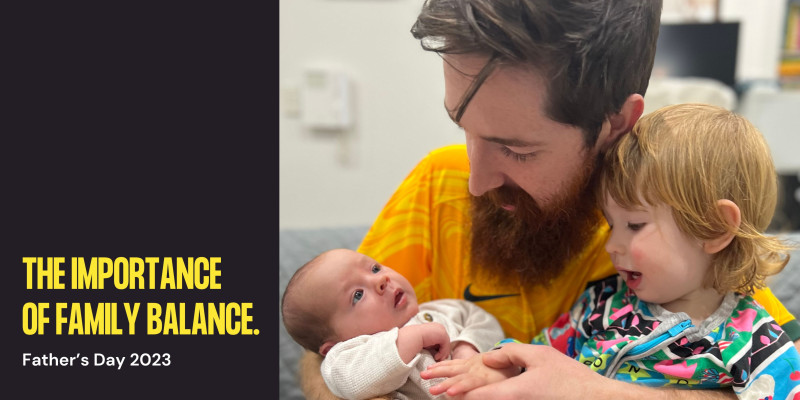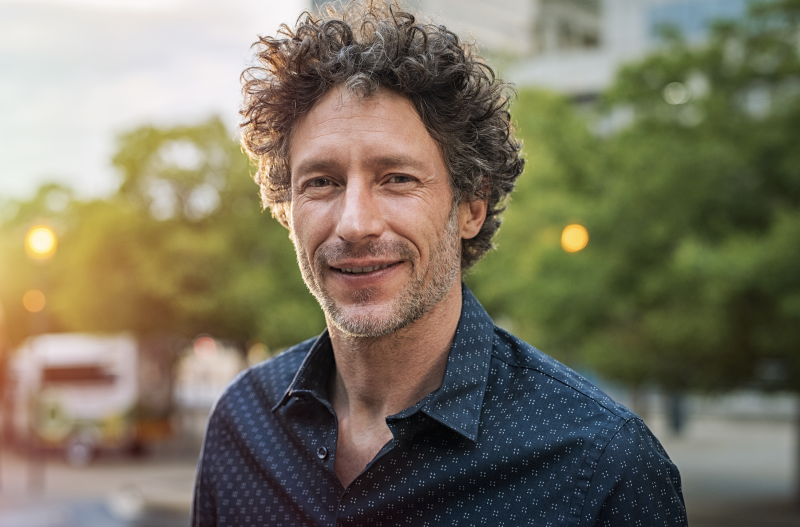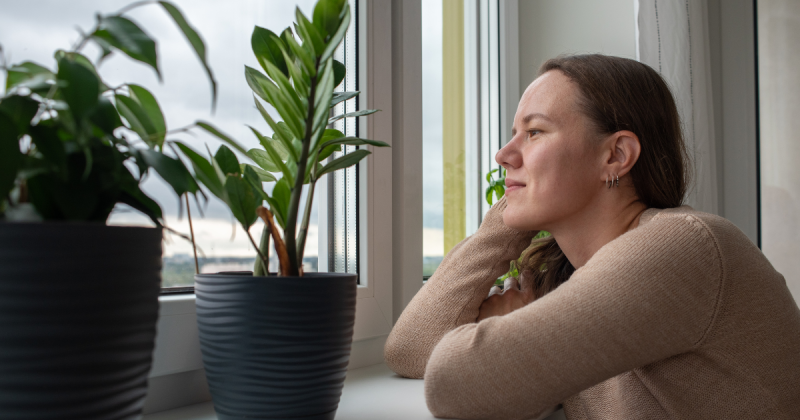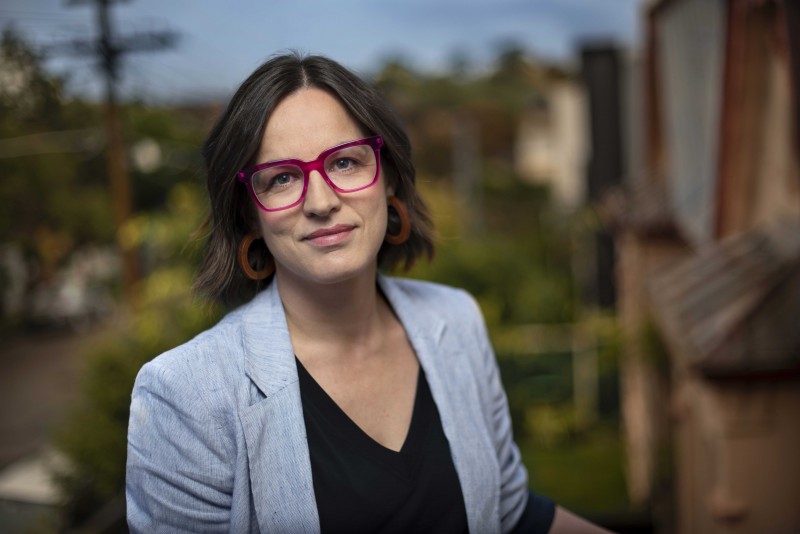Presenter, Mamamia online editor and journalist, Elfy Scott is the author of The One Thing We’ve Never Spoken About, a book about her lived experience of her mother’s complex mental health condition. We spoke to Elfy, who lives in Sydney with her partner, for Women’s Mental Health Week.
The SANE Blog
Father’s Day can impact different people in different ways. For some it’s a happy time, for others it may create difficult emotions or memories.
SANE Team Member Matt not only plays an important role helping to support people with complex mental health conditions. He’s also navigating being a Dad to 3-week-old Matilda and Marty, 2 years of age.
This week, SANE is celebrating the strength and achievements of Aboriginal and Torres Strait Islander peoples. We acknowledge the profound and long-term connection they have with the land and water around us, and recognise the immense history, culture and knowledge they bring and generously share with us all.
Work-related post-traumatic stress disorder (PTSD) can be very challenging to deal with, but there are ways to manage it more effectively.
PTSD can develop in response to witnessing or experiencing very shocking, extreme or sudden events. This can include events that happen at work, such as severe accidents and injuries, sexual harassment or assault, bullying, emotional or physical abuse or discrimination.
Last Friday was National Sorry Day or National Day of Healing. This day is in memory of ‘The Stolen Generations’ of Aboriginal and Torres Strait Islander people, many of whom were forcibly removed from their families to be assimilated into ‘white’ Australian culture.
Engaging in meaningful work is an important part of many people’s lives, including those living with schizophrenia. Many people with schizophrenia can absolutely find a job and thrive in the workplace, and work across a variety of industries and positions. This is especially the case when they have the right supports in place.
If you've seen people diagnosed with bipolar disorder on the news, or in a movie, you might have an idea of what bipolar disorder involves. But did you know that there are different types of bipolar disorder, and it affects people in different ways?
This World Bipolar Day (March 30 2023), we’re focusing on the unique experiences of three people living with bipolar disorder – Matt, Holly and Alice. We talked to them about what they think is important for people to know about bipolar disorder.
If you have social anxiety, you know what it feels like to experience intense anxiety in social situations. It can involve a fear of judgement or embarrassment and can sometimes result in you avoiding social situations altogether.
While it’s quite common (around 7 per cent of Australians have experienced social anxiety in the past 12 months), there are a lot of myths surrounding it. Debunking these myths is important, so that they don’t create stigma and self-stigma, or prevent people from seeking help.
Here are five myths about social anxiety – and the facts that prove them wrong.
A message from SANE CEO, Rachel Green
I know from personal experience that the second week in September can be tough going.
Don’t get me wrong, I love that there’s so much more awareness and that events like R U OK? and World Suicide Prevention Day have given people the knowledge and confidence to have meaningful conversations about mental health and suicide.
What I find really difficult - and I know many others who feel the same way – is how the prevailing messages shared across this week makes it seem like suicide prevention is a relatively simple, one-off thing.
For people in the complex mental health community, thoughts of suicide can be a regular occurrence. People living with long-term mental illness are significantly more likely to die by suicide than the general public. In some cases, the suicide risk is up to ten times greater.
If you ask someone living with trauma, psychosis or long-term depression if they’ve considered suicide, chances are the answer will be yes.








